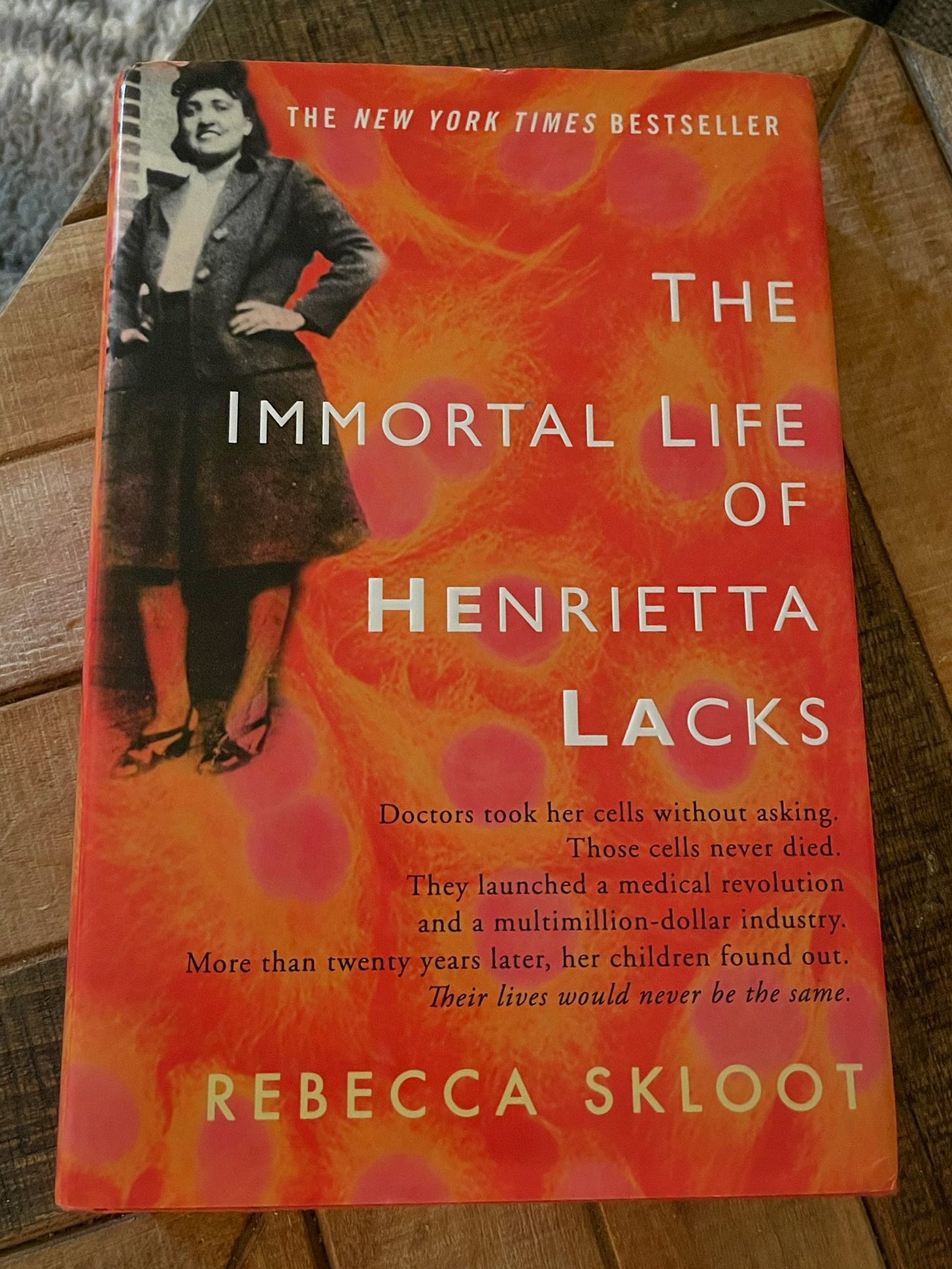The Immortal Life of Henrietta Lacks by Rebecca Skloot
She explains the science behind HeLa cells with clarity and precision, making complex concepts accessible to readers without a scientific background.
Rebecca Skloot’s The Immortal Life of Henrietta Lacks is a multifaceted exploration of science, ethics, and humanity that reads like a detective story, a family memoir, and a scientific exposé all at once. At its core, the book tells the story of Henrietta Lacks, an African American woman whose cancer cells, taken without her knowledge in 1951, became the first immortal human cell line—known as HeLa. These cells revolutionized medicine, contributing to breakthroughs like the polio vaccine, cancer research, and gene mapping, yet Henrietta’s story remained largely untold for decades.
What makes this book stand out is Skloot’s ability to weave together multiple narratives seamlessly. She explains the science behind HeLa cells with clarity and precision, making complex concepts accessible to readers without a scientific background. At the same time, she uncovers the deeply personal story of Henrietta Lacks—her life, her death, and the legacy she left behind. Skloot’s dedication to honoring Henrietta’s humanity is evident in her meticulous research and her empathetic portrayal of the Lacks family, who were largely unaware of Henrietta’s contributions to science and struggled with poverty, exploitation, and a lack of access to the very medical advancements their mother’s cells made possible.
One of the most compelling aspects of the book is its exploration of the ethical dilemmas surrounding medical consent and racial inequality. Skloot doesn’t shy away from addressing the uncomfortable truths about how Henrietta’s cells were taken and used without her or her family’s knowledge, raising important questions about who benefits from scientific progress and who is left behind. The Lacks family’s journey to understand Henrietta’s legacy and reclaim their own narrative is both heartbreaking and inspiring, adding a deeply human dimension to the story.
Skloot’s writing is engaging and compassionate, and her commitment to telling Henrietta’s story with dignity and respect is evident on every page. She spent over a decade building trust with the Lacks family, and her dedication shines through in the intimate and personal connections she forms with them. The result is a book that is not only informative but also deeply moving.
The Immortal Life of Henrietta Lacks is more than just a book about science; it’s a story about identity, justice, and the enduring impact of one woman’s life. It challenges readers to think critically about the intersection of race, class, and medicine, while also celebrating the resilience and humanity of Henrietta Lacks and her family. This is a must-read for anyone interested in science, history, or social justice—it’s a book that stays with you long after you’ve turned the last page.





another well written review.